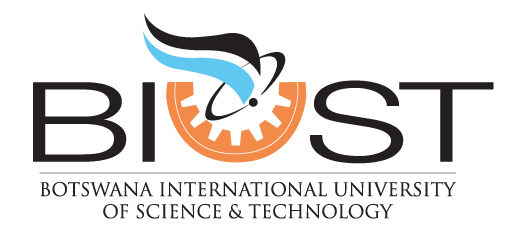The Botswana International University of Science and Technology (BIUST), through the CO-CO WASH project under the Africa–Japan Collaborative Research Programme, hosted a multi-stakeholder workshop in Francistown on Thursday, 16 October 2025. The event brought together researchers, government representatives, educators, and community stakeholders to discuss sustainable approaches to Water, Sanitation, and Hygiene (WASH) service delivery in peri-urban communities.
Held under the theme “Multi-Stakeholder Partnership for Peri-Urban WASH Service Delivery,” the workshop emphasized the importance of collaboration in addressing WASH challenges that continue to affect low-income neighbourhoods, particularly in rapidly growing urban and peri-urban areas.
In her welcome remarks, Ms. Chabongwa Matseka, District Commissioner for the City of Francistown, underscored the critical importance of clean water and sanitation for human dignity and health. She noted that while Francistown has made progress in improving sanitation, peri-urban localities still face issues such as poor maintenance of sanitation infrastructure and limited access to sanitation services especially in Per-urban localities. Ms. Matseka expressed optimism that the findings from the CO-CO WASH study would help strengthen WASH systems, enhance hygiene practices in schools, and foster community-led solutions and multi-stakeholder collaboration.
The CO-CO WASH (Co-Creation of a Community-Based Water, Sanitation, and Hygiene Model with Children and Youth) project forms part of the Africa–Japan Collaborative Research (AJ-CORE) Programme, a partnership initiative between Japan, South Africa, and other African countries aimed at advancing collaborative research.
The project brings together institutions from Botswana (BIUST), South Africa (University of KwaZulu-Natal and University of Fort Hare), Zambia (Harvest University), and Japan (Hokkaido University).
Funded by the Ministry of Communications and Innovation through the Department of Research, Science and Technology (DRST), the Botswana component of the project received about P1 million to focus on environmental assessment and community engagement in Francistown’s peri-urban localities which includes: Kgapamadi, Somerset East and West, Monarch East and West, Aerodrome, Blue Town, Block 1, Block 2 and Area W.
Professor Wellington Masamba, Dean of the School of Pure and Applied Sciences and Principal Investigator (PI) of the project, presented an overview highlighting its focus on identifying regional gaps in WASH interventions and diarrheal disease management. He emphasized the significance of studying peri-urban areas, which often face unique socio-economic and environmental challenges.
Ms. Laone Thato J. Mosii, a PhD candidate in Pure and Applied Chemistry, presented findings from the WASH Knowledge, Attitudes, and Practices (KAP) study among children and youth. The research revealed that although students are highly aware of hygiene issues, schools still struggle with inadequate sanitation facilities, limited menstrual health support, and inconsistent access to clean water. Ms. Mosii also shared preliminary results from her PhD research on the chemical detection of human faecal contamination in wastewater, identifying caffeine as a promising low-cost chemical marker for tracing human faecalpollution.
Dr. Vincent Basupi, Lecturer in Environmental Sciences and Co-Principal Investigator (Co-PI) of the project, discussed the public health implications of poor WASH conditions, particularly diarrheal diseases linked to inadequate sanitation infrastructure. He noted that while measures such as phasing out pit latrines and converting some of the pit latrines into flush toilets exist, continuous community engagement and capacity building is vital for achieving sustainable improvements of these infrastructures. Findings from social surveys show a lack of proper management of the recently converted flush toilets and a perilous scenario of some of the existing pit latrines (most observed toilets structures in the peri-urban localities were compromised).
Dr. Lemme Kebaabetswe, Head of Department and Senior Lecturer in the School of Life Sciences and Co-PI of the project, presented findings from environmental assessments that detected coliform bacteria across multiple exposure pathways, including raw produce, soil, surface water, and open drains. She emphasized that poor maintenance and delayed repair of leaking pipes in low-income areas heighten contamination risks, calling for stronger collaboration between stakeholders and communities.
The workshop underscored the value of multi-stakeholder partnerships—spanning academia, government, industry, and communities—in achieving lasting improvements in WASH service delivery. In addition to the findings, policy briefs in the form of recommendations were presented to stakeholders. Participants agreed that integrating community participation, research evidence, and policy action is key to building resilient and equitable sanitation systems.
The CO-CO WASH project directly supports several United Nations Sustainable Development Goals (SDGs), including:
- SDG 3: Good Health and Well-being – reducing waterborne diseases through improved hygiene and sanitation.
- SDG 6: Clean Water and Sanitation – promoting equitable access to safe and sustainable WASH services.
- SDG 11: Sustainable Cities and Communities – strengthening WASH systems in peri-urban environments.
- SDG 17: Partnerships for the Goals – fostering collaboration between universities, government, and local communities.
The CO-CO WASH Multi-Stakeholder Workshop successfully created a platform for dialogue and collaboration toward safer and more sustainable WASH systems in Botswana’s peri-urban communities. As BIUST continues to champion research-driven development, the University reaffirms its commitment to addressing real-world challenges through partnerships, innovation, and community engagement.
